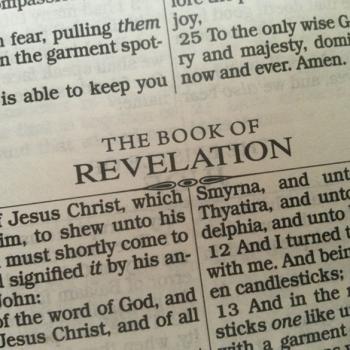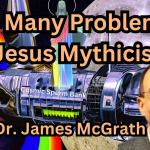
First things first: My new book, Breaking Bad Faith: Exposing Myth and Violence in Popular Theology to Recover the Path of Peace was released today on Amazon! See what people are saying about this book that helps people in faith deconstruction and reconstruction:
“Just when I thought I had read all the “deconstruction” books worth reading, Michael Camp came along and said, ‘Hold my beer.’ Michael’s offering, Breaking Bad Faith takes deconstruction and reconstruction of one’s faith to a whole new level. This book is not a sugar coated, syrupy repetition of typical deconstruction complaints. Michael unpacks conventional Christian theological myths using reason, critical thinking, experience, and grounding his observations solidly in historic precedent and fact… But he goes beyond simply deconstructing the negative elements of this destructive theology, but also provides a beautiful picture of the authentic, radical love-ethic of Jesus. He provides a path toward peace and restoration. Breaking Bad Faith gives us hope and an alternative to the corrosive elements of Christianity we see playing out today.”
~ Dan Henderson, author of Confessions of a Recovering Evangelical
One of my goals in writing it was to expose damaging religious myths that are embedded in evangelicalism, give readers a sound history lesson, and offer a much more historically-honest narrative. One that isn’t often recognized because of our tendency to look at the Bible as an all-or-nothing book. For evangelicals, it’s ALL true and inerrant. For those of us deconstructing our evangelical or conservative faith, it often becomes NOTHING. In post-deconstruction, it can sometimes be viewed as a wholly unreliable book. But what if we started to treat it like we would any human document that claims to be historical? Let’s judge it by its own merits written over many centuries by up to 40 different authors with widely different views. The following is an excerpt from the book:
Faith Deconstruction and Bible Fraud
“Jesus and Paul did not believe in an inerrant, universally applicable, and altogether authoritative Bible. Most modern theologies of the Bible are based on historical myths. The Bible is not an infallible rulebook by which we are to live (even if you stipulate infallibility of the original manuscripts, which we don’t have).
I see the Bible as a wonderful book that contains divinely inspired messages, but to truly appreciate it, one needs to acknowledge its inherent problems. Just like any historian would view historical accounts with a critical eye until mistakes and inconsistencies sink to the bottom and probable truths and meaningful messages rise to the surface, we need to do the same with the Bible.
This is pure heretical thought to the conservative-minded Christian. But before you throw me off a cliff, bear this in mind: Jesus viewed the Bible this way. As we will learn later, he read it selectively, favored the word of the Prophets over sacrificial laws, made exceptions to Torah stipulations, and contradicted the character of the God of much of the Old Testament. In fact, so did the prophets with some exceptions. Jesus didn’t see the Bible as a wholly divine book written by humans but as a human book with some of God’s fingerprints on it.
Jesus, and most of the writings of the prophets, differentiated between two voices in the scriptures. A voice of love and forgiveness versus a voice of retribution and wrath. A voice of mercy versus a voice of murder. A voice of divine revelation versus a voice of human religion. We will see this dichotomy clearly later in the book when we look at concrete examples.”
“Anyone that is looking for an alternative to conservative Christian theology, and a guide to find your way through the labyrinth of myths Christians have devised over the centuries will appreciate this book.”
~ Dan Henderson, author of Confessions of a Recovering Evangelical
Faith Deconstruction and the Two-Faced God
“The first foundational tenant that leads to an array of myths is the belief that God is two-faced. It comes from a literal reading of the Bible. In evangelicalism, fundamentalism, Catholicism, and most of Western Christendom, people are taught to view the Bible as a divinely ordained, definitive collection of books that are the authoritative Word of God. They are inerrant (without error) and infallible (incapable of being wrong). The result of this view is that people believe everything they read in the Bible as historically and theologically accurate. So, in reading passages in the Bible that include both retributive narratives (the flood story, eye-for-eye and capital punishments in the Law, the Canaanite conquest by Israel) and restorative narratives (the Genesis story of Joseph and his brothers, the prophets on restorative justice, and Jesus’ teachings), they are forced to believe in a god that is both violent and loving. A god of war and a god of peace. A god who is not wholly good because of his violent streak. A two-faced, or Janus-faced god, as we noted earlier.
There are three huge problems with this view of the Bible and this view of God. First, when practically applied, this view of the Bible and God is irrational. It is a complete contradiction to the linguistic, cultural, and historical facts, not to mention a contradiction in logic.
Second, as I’ve already said and can’t say enough, Jesus and the earliest Christians, not to mention Jewish people of antiquity, never viewed the Bible this way!
Third, Jesus and his teachings never portray God as two faced. Jesus’ “heavenly Father” is principled, consistently righteous, and loving to all—friends and enemies alike. Jesus’ Father does hold people accountable for sins and what they do to harm fellow human beings. But He does it in a way that is remedial and restorative, not retributive, much the same way God restored the first human murderer, Cain, in the book of Genesis (as we will see below). He doesn’t destroy His lost sheep. He goes out of his way to find them and bring them back to the fold.”
On Violence in Popular Theology and American Culture
“The fourth major tenant that leads to upholding Christian myths is believing the notion that God justifies violent punishment for sins and advocates for war under certain circumstances. The Old Testament teaches us that God drowned the planet (except for one family) in response to people being evil, that God ordered the Israelites to go to war with the Canaanite tribes and kill every man, woman, child, infant, and animal that breathes in each city without showing mercy at all. The Torah teaches that God commands capital punishment for a variety of religious and immoral sins, including homicide, cursing one’s parents, striking one’s parents, kidnapping, witchcraft and divination, bestiality, worshiping other gods, violating the Sabbath, child sacrifice, sexual relations outside of marriage for a woman or with another man’s wife for a man, incest, and male homosexual intercourse in the context of idolatry or shrine prostitution (by the way, the Torah has no such punishment or any punishment at all for lesbian sexuality). God also commands retributive justice. ‘And a man who injures his countryman—as he has done, so it shall be done to him, namely, fracture for fracture, eye for eye, tooth for tooth. Just as another person has received injury from him, so it will be given to him’ (Leviticus 24:19–21). God is routinely portrayed as using death and retribution to weed out evil influences and as a type of appeasement toward him to bring about divine justice and equilibrium.
Faith in such a God makes it easy for believers to justify violent punishment, death sentences for crimes, and the act of war in various circumstances, even the pettiest. In stark contrast, Jesus teaches people to not reciprocate but rather turn the other cheek, go the second mile (to turn the moral tables on one’s adversary), love one’s enemies, be kind to the ungrateful and wicked, and have mercy on them just as our heavenly Father does. Despite those admonitions, most modern Christians do not apply Jesus’ teachings. Psychological (inhumane imprisonment) and/or violent punishment, death penalties, and war is routinely justified and even applauded.”
By dissecting the retributive and violent narratives in the Bible, examining the history of certain “Christian” doctrines, and taking a closer look at the restorative-justice way of Jesus and many of the prophets, one can take faith deconstruction and reconstruction to a whole new level. This book is your guide.
******
Michael Camp tends the Spiritual Brewpub, which helps disillusioned or post-evangelicals uncover historical facts and insights that help them deconstruct, rethink, and rebuild a more authentic faith or philosophy of life. He is the author of Breaking Bad Faith: Exposing Myth and Violence in Popular Theology to Recover the Path of Peace. To get specific help deconstructing conservative Christianity and rebuilding healthy faith, see Michael’s Religious Deconstruction Workshop. To hear fascinating interviews with leading voices in the deconstruction community, listen to the Spiritual Brewpub Podcast.


















